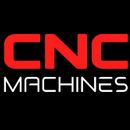Scaling Your CNC Business: Strategies for Growth

Scaling Your CNC Business: Strategies for Growth
As the demand for precision machining and manufacturing continues to increase, growing your CNC (Computer Numerical Control) business offers exciting opportunities for enhanced profitability and market presence. Whether you aim to diversify your services, acquire new equipment, or venture into new markets, implementing effective growth strategies is crucial. In this article, we explore approaches to successfully scale your CNC business.
1. Diversifying Services
Expanding your CNC business's service range can attract new customers and increase revenue streams. Here are some diversification strategies:
A. Offer Additional Machining Processes
- Explore Different Types of Machining: Consider services beyond CNC milling and turning, such as laser cutting, waterjet cutting, or EDM (Electrical Discharge Machining).
- Introduce Secondary Operations: Offer secondary operations like grinding, polishing, or assembly for comprehensive customer solutions.
B. Custom Fabrication
- Tailored Solutions: Provide custom fabrication services to cater to specific customer needs and industries.
- Rapid Prototyping: Offer rapid prototyping to help clients quickly develop and test new designs, especially in sectors like automotive or aerospace.
C. Value-Added Services
- Design and Engineering Support: Enhance offerings by providing design and engineering services, including CAD/CAM design and feasibility studies.
- Maintenance and Repair Services: Consider CNC machine maintenance and repair services to generate additional revenue and build long-term relationships.
2. Acquiring New Equipment
Investing in new equipment can enhance your production capabilities and efficiency. Here's how to approach acquiring new machinery:
A. Evaluate Equipment Needs
- Analyze Current Capabilities: Assess existing machinery to identify capability gaps that new equipment could fill.
- Consider Advanced Technologies: Look into advanced CNC machines offering features like multi-axis capabilities, automation, or improved precision.
B. Invest in Automation
- Automate Production Processes: Implement automation solutions like robotic arms or automated material handling to streamline operations, cut labor costs, and boost output.
- Thru-Spindle Coolant Systems: Upgrade to advanced coolant systems for improved machining efficiency and cooling.
C. Financing Options
- Explore Leasing Options: Leasing equipment can reduce initial capital expenditures and maintain cash flow.
- Research Grants and Incentives: Investigate available grants or financial incentives for small manufacturers looking to upgrade technology.
3. Entering New Markets
Expanding into new markets can offer fresh opportunities for your CNC business. Here's how to approach market expansion:
A. Identify Target Industries
- Market Research: Conduct market research to identify industries that could benefit from your CNC services, such as medical device manufacturing, automotive, aerospace, or consumer products.
- Niche Markets: Focus on niche markets where specialized CNC services can differentiate your business.
B. Develop Strategic Partnerships
- Collaborate with Other Companies: Form partnerships with businesses in complementary industries to leverage strengths and expand market reach.
- Join Industry Associations: Participate in industry associations and trade organizations to network and gain visibility in new markets.
C. Geographic Expansion
- Assess New Locations: Consider opening new facilities in strategic locations to serve different geographical markets more effectively.
- Remote Services: Offer remote CNC services to reach customers beyond your immediate area.
4. Strengthening Online Presence
A robust online presence is essential for growth in today's digital age. Here are strategies to enhance your CNC business's online visibility:
A. Optimize Your Website
- SEO Strategies: Implement SEO strategies to improve your website's search engine ranking for easier discovery by potential customers.
- Showcase Projects: Highlight successful projects and case studies on your website to demonstrate capabilities and attract new clients.
B. Utilize Social Media
- Engagement: Use social media to engage with potential customers, share updates on your services, and showcase CNC machining expertise.
- Content Marketing: Create valuable content, such as blog posts, videos, and infographics, addressing industry challenges and positioning your business as a thought leader.
C. Online Advertising
- Targeted Advertising: Utilize online advertising (e.g., Google Ads, LinkedIn Ads) to target specific demographics or industries aligning with your services.
- Email Marketing: Implement email marketing campaigns to stay connected with existing customers and nurture leads for future business opportunities.
5. Focusing on Quality and Customer Service
Quality and customer satisfaction are crucial for sustained growth. Here's how to prioritize these aspects:
A. Quality Control Processes
- Implement Robust QC Procedures: Establish comprehensive quality control measures to ensure that every produced part meets stringent quality standards.
- Certifications: Consider obtaining industry certifications (e.g., ISO) to demonstrate commitment to quality and enhance credibility.
B. Exceptional Customer Service
- Build Relationships: Focus on building strong client relationships through effective communication, timely delivery, and responsiveness.
- Gather Feedback: Regularly solicit feedback from customers to identify improvement areas and adapt services accordingly.
Conclusion
Scaling your CNC business requires strategic planning and a proactive approach to diversification, equipment investment, market expansion, online presence, and quality assurance. By implementing these growth strategies, you can position your CNC business for long-term success and capitalize on the increasing demand for precision machining and manufacturing. With dedication and innovation, your CNC business can thrive in this competitive industry.


